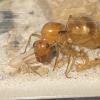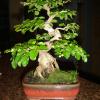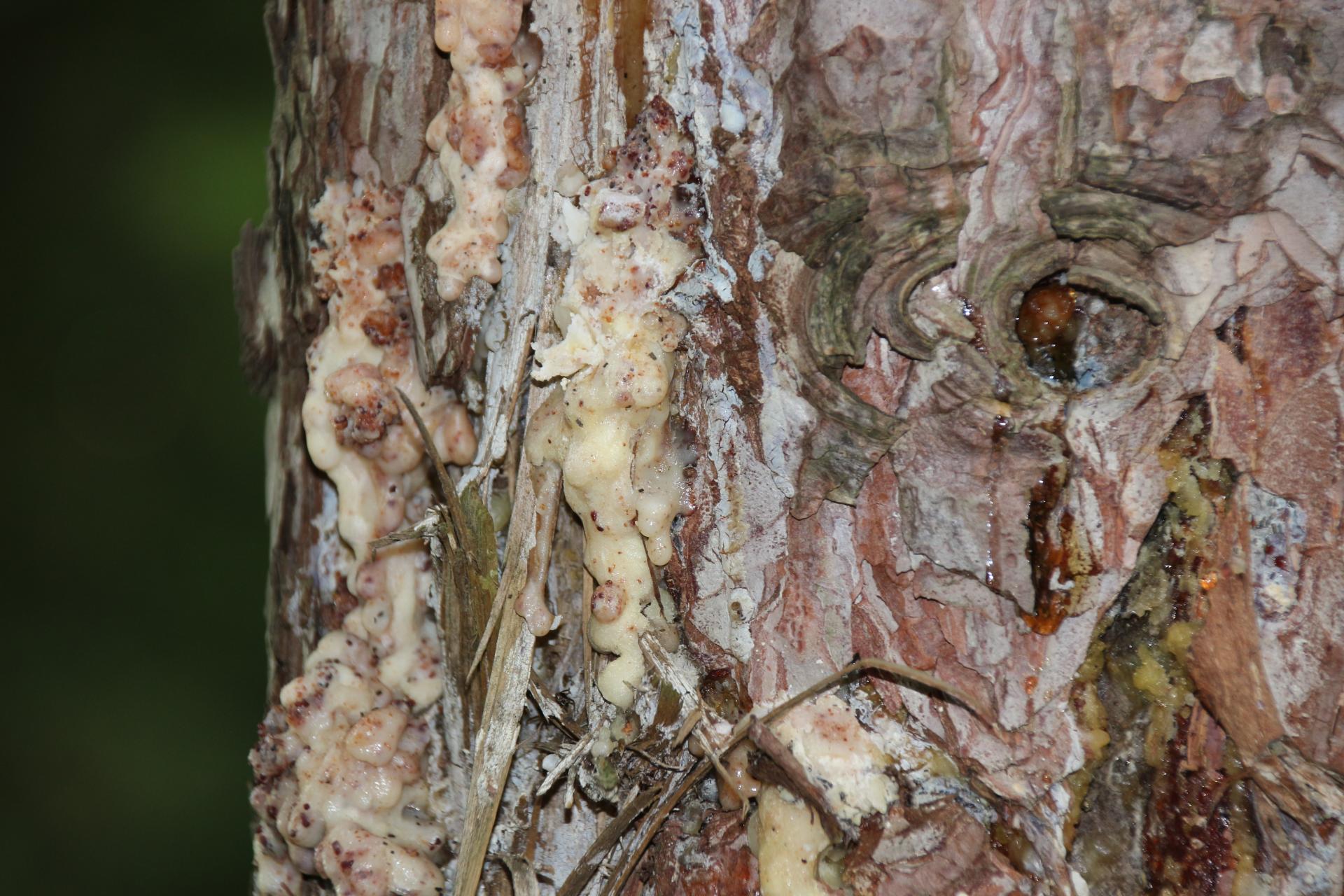- Formiculture.com
- Forums
- Gallery
- Members
- Member Map
- Chat

Hypothesis: Feeding Ants Tree Sap
Started By
100lols
, Aug 1 2023 1:22 PM
9 replies to this topic
#1
 Offline
-
Posted August 1 2023 - 1:22 PM
Offline
-
Posted August 1 2023 - 1:22 PM
Hello fellow ant enthusiast,
I recently had an intriguing idea and wanted to share it with you all. What if we were to feed tree sap to ants? As some of you might already know, tree sap is known to possess anti-fungal and antibiotic properties, which could potentially offer numerous benefits to ants and their colonies.
Just like any other living organism, ants are also susceptible to infections and diseases. By introducing tree sap into their diet, we might be able to observe several interesting outcomes:
1. Enhanced Immunity: The antibiotic properties of tree sap could potentially boost the ants' immune systems, making them more resilient to harmful pathogens.
2. Disease Prevention: Since tree sap is known to have anti-fungal properties, it might help prevent the growth and spread of fungal infections within the ant colonies.
3. Colony Health: A healthier ant colony could lead to improved overall colony productivity, better resource management, and possibly even population growth.
However, before proceeding with any experiments, it's obviously important to consider potential drawbacks and risks. We must ensure the sap used is safe for ants and doesn't contain harmful substances that could lead to unintended consequences.
What do you all think about this idea? I'd love to hear your thoughts and suggestions on how to further explore this hypothesis.
Looking forward to your input!
Cheers,
Dax London
References:
https://treeplantati...ing properties.
https://www.britanni...o their colony.
I recently had an intriguing idea and wanted to share it with you all. What if we were to feed tree sap to ants? As some of you might already know, tree sap is known to possess anti-fungal and antibiotic properties, which could potentially offer numerous benefits to ants and their colonies.
Just like any other living organism, ants are also susceptible to infections and diseases. By introducing tree sap into their diet, we might be able to observe several interesting outcomes:
1. Enhanced Immunity: The antibiotic properties of tree sap could potentially boost the ants' immune systems, making them more resilient to harmful pathogens.
2. Disease Prevention: Since tree sap is known to have anti-fungal properties, it might help prevent the growth and spread of fungal infections within the ant colonies.
3. Colony Health: A healthier ant colony could lead to improved overall colony productivity, better resource management, and possibly even population growth.
However, before proceeding with any experiments, it's obviously important to consider potential drawbacks and risks. We must ensure the sap used is safe for ants and doesn't contain harmful substances that could lead to unintended consequences.
What do you all think about this idea? I'd love to hear your thoughts and suggestions on how to further explore this hypothesis.
Looking forward to your input!
Cheers,
Dax London
References:
https://treeplantati...ing properties.
https://www.britanni...o their colony.
- aznphenom and BleepingBleepers like this
#2
 Offline
-
Posted August 1 2023 - 1:44 PM
Offline
-
Posted August 1 2023 - 1:44 PM
I think that this is a great idea and could potentially greatly benefit our ants, but definitely needs some experimenting to get right. I have seen many ants drinking sap from different trees. However, some trees most definitely have sap that can kill an entire colony. I will try some different kinds of sap (ones that I know won’t harm them) with my pheidole colony.
- 100lols likes this
#3
 Offline
-
Posted August 1 2023 - 1:52 PM
Offline
-
Posted August 1 2023 - 1:52 PM
I think that this is a great idea and could potentially greatly benefit our ants, but definitely needs some experimenting to get right. I have seen many ants drinking sap from different trees. However, some trees most definitely have sap that can kill an entire colony. I will try some different kinds of sap (ones that I know won’t harm them) with my pheidole colony.
That’s awesome and exactly the kind of response I was hoping to prompt with this thought.
Please keep us updated!! What kind of tree saps do you plan to experiment with? Additionally, what kind of tree saps do you know to be harmful for ants?
I collected some pine tree sap today from trees around my job. Hence the thought… But I’m not sure how I would know for certain what is safe and what isn’t.
#4
 Offline
-
Posted August 1 2023 - 2:53 PM
Offline
-
Posted August 1 2023 - 2:53 PM
Thank you! I was planning on trying a few different kinds. Because there are always a bunch of ants on my orange tree, I am assuming the sap won’t be poisonous. I know that citrus juice is bad for ants, but the sap might be different. I also have some pine trees near me that I will try feeding to them. I will put any sap that I am going to feed them in a container with a couple workers overnight before risking giving it to the colony.
I am assuming that plants will with fruits or thorns that are poisonous probably aren’t going to be good for ants (but I have no way of knowing for sure unless I see ants die because of it). In addition, I have a poisonous plant called a potato vine (not actual potatoes) that is purple ish with small white flowers. When I was trimming it, some sap landed on the ground, and a couple of hours later there were dead ants around it.
I also have a beehive that creates something called propolis. The bees mix sap together to make a glue/building material that kills bacteria and other pests like mites. However, ants don’t seem to be affected by this. This glue is also used in many medicines and can help with sore throats and colds. I will also try feeding propolis to the ants.
If they don’t seem interested, I might mix the sap with sugar to trick them into eating it.
I am assuming that plants will with fruits or thorns that are poisonous probably aren’t going to be good for ants (but I have no way of knowing for sure unless I see ants die because of it). In addition, I have a poisonous plant called a potato vine (not actual potatoes) that is purple ish with small white flowers. When I was trimming it, some sap landed on the ground, and a couple of hours later there were dead ants around it.
I also have a beehive that creates something called propolis. The bees mix sap together to make a glue/building material that kills bacteria and other pests like mites. However, ants don’t seem to be affected by this. This glue is also used in many medicines and can help with sore throats and colds. I will also try feeding propolis to the ants.
If they don’t seem interested, I might mix the sap with sugar to trick them into eating it.
- 100lols likes this
#5
 Offline
-
Posted August 1 2023 - 6:28 PM
Offline
-
Posted August 1 2023 - 6:28 PM
My citrus plants are always loaded with Argentine ants as well. Sounds like some really promising ideas. I’ll test out the pine tree sap I found today as well on some workers from the wild to get started.
I’ll have to research a bit more about which plants or trees are known to be toxic for ants.
I’m absolutely fascinated by the propolis… I started thinking about what ants could be ingesting in the wild that helps with longevity and overall colony wellness. Very excited to do some more digging…
Anyone else have any experience with ants and tree sap? Or other natural immunity boosting supplements we could be providing as an option for our pets?
I’ll have to research a bit more about which plants or trees are known to be toxic for ants.
I’m absolutely fascinated by the propolis… I started thinking about what ants could be ingesting in the wild that helps with longevity and overall colony wellness. Very excited to do some more digging…
Anyone else have any experience with ants and tree sap? Or other natural immunity boosting supplements we could be providing as an option for our pets?
- ANTdrew likes this
#6
 Offline
-
Posted August 2 2023 - 3:21 AM
Offline
-
Posted August 2 2023 - 3:21 AM
Maple trees or cherry would be ideal, but there may not be many of those in California.
- 100lols likes this
"The ants are a people not strong, yet they prepare their meat in the summer." Prov. 30:25
Keep ordinary ants in extraordinary ways.
Keep ordinary ants in extraordinary ways.
#7
 Offline
-
Posted August 2 2023 - 4:55 AM
Offline
-
Posted August 2 2023 - 4:55 AM
I am one of those that can't seem to get Camponotus pass year 2. But that could be due to me not hibernating them. I have one colony now. they're off to a good start. I might give this tree thing a try. Would you dilute it or give it as is?
- 100lols likes this
Keeps: Camponotus, Tetra
Wants (Please reach out if you have them for sale if you’re in the US): Acromyrmex Sp., Atta Sp., Cephalotes Sp., Myrmecocystus Sp (Prefer Mexicanus), Odontomachus Sp. (Prefer Desertorum), Pachycondyla Sp., Pheidole Sp (Prefer Rhea. The bigger the better. Not the tiny bicarinata), Pogonomyrmex Sp (Prefer Badius)., Pseudomyrmex Sp. (Prefer the cute yellow ones)
#8
 Offline
-
Posted August 2 2023 - 8:53 AM
Offline
-
Posted August 2 2023 - 8:53 AM
Extracting sap from my orange tree isn’t going too well, so I will try to dissolve some propolis in sugar water and see what happens.
- 100lols likes this
#9
 Offline
-
Posted August 2 2023 - 2:17 PM
Offline
-
Posted August 2 2023 - 2:17 PM
Maple trees or cherry would be ideal, but there may not be many of those in California.
Definitely! We may not have many maple or cherry trees but we have plenty of pine and coastal oak.
Just my luck, I collect sap from a Pinus Ponderosa, which is toxic to most animal and will be trashed. But most other pine trees should be safe and are edible.
I am one of those that can't seem to get Camponotus pass year 2. But that could be due to me not hibernating them. I have one colony now. they're off to a good start. I might give this tree thing a try. Would you dilute it or give it as is?
Yes, the Camponotus discussion played a big role in my thought process when hypothesizing tree sap as a supplement.
Great question about the dilution. We would need to further research because I haven’t found much information on the subject. The sap may even need to be mixed with a carbohydrate i.e. sugar? Test out some regular sap, sweetened sap, and watered down or “cut” sap. I’d love to hear your findings!
Extracting sap from my orange tree isn’t going too well, so I will try to dissolve some propolis in sugar water and see what happens.
From what I’m reading when harvesting sap from a tree, “The entire process will usually take about 14 to 21 days.” Here is a reference link!
As mentioned the pine sap I collected is likely toxic. I’ll test it on some Argentines later today…
There is a lot of information about the benefits of tree sap, but not how it could benefit ants. As mentioned earlier, introducing tree sap into the ants' diet could potentially enhance their immunity, prevent diseases, and improve overall colony health. Scientific exploration and observation are key to determining whether tree sap could be a viable addition to ants' diets.
https://wildfoodism....blood pressure.
Sent from my iPhone using Tapatalk
#10
 Offline
-
Posted August 3 2023 - 12:20 AM
Offline
-
Posted August 3 2023 - 12:20 AM
I mentioned about giving spruce cones to my Camponotus colonies in the "Camponotus in Captivity" thread. I originally put them in the outworld as decoration, but when I saw the Attenborough video about the forest ants in Scandanavia using pine sap for its' antibacterial benefits, I hoped they might be useful if my ants required them. To be honest, I never saw much more than curious inspection by the ants, but no real collecting of the sap.
The original cones have dried out now and I decided to refresh them and see what the ants' reaction might be. I gave them fresh, white spruce cones (Picea glauca) as they are small and yet exuded lots of liquid sticky sap when I bruised them with a pair of pliers. Again, there wasn't any mad dash for them, and they still don't seem to attract much attention from the ants after a couple of days. So, I decided to try a different form to sap, the dried sap that was exuded from a wound in the bark of an Austrian Pine tree (Pinus nigra) and has been curing, (drying) for a couple of years now. The dried sap is still slightly sticky but is dry enough to cut with a scalpel and I cut it into small pieces, then placed them in a couple of colonies today. Again, no great flurry of activity initially, but I'll watch and see what happens. Below is a picture of the dried pine sap that I was able to cut from the tree and slice up for my colonies.
- 100lols and AntsGodzilla like this
My father always said I had ants in my pants.
1 user(s) are reading this topic
0 members, 1 guests, 0 anonymous users

















